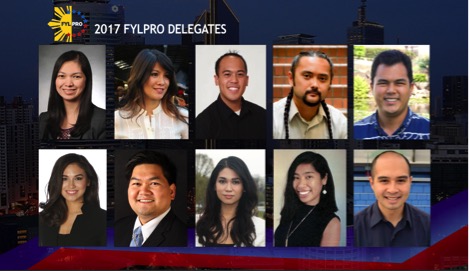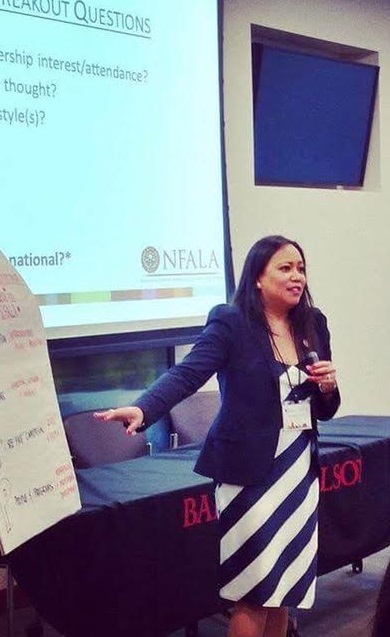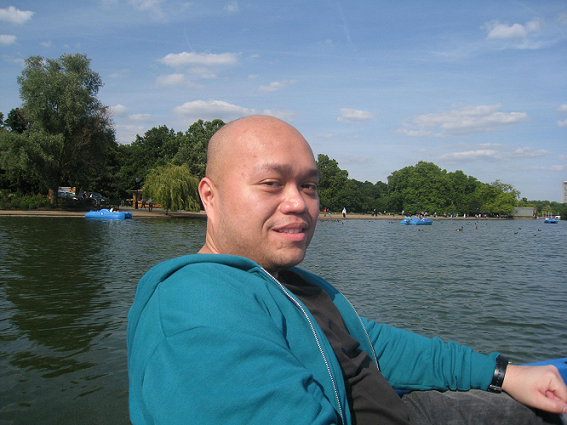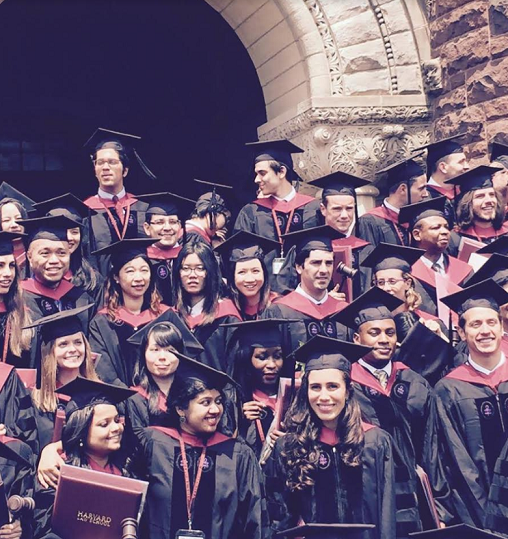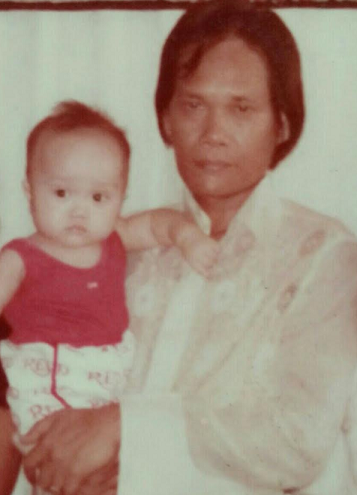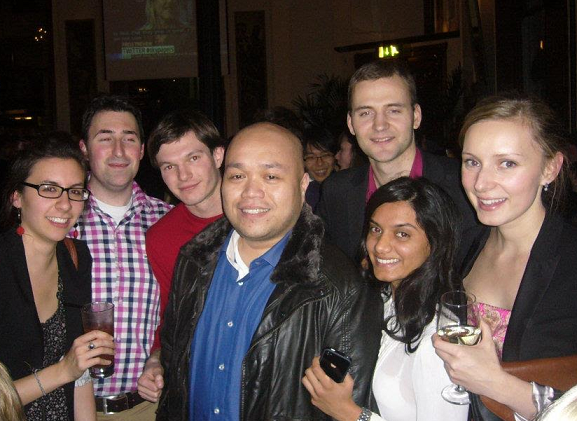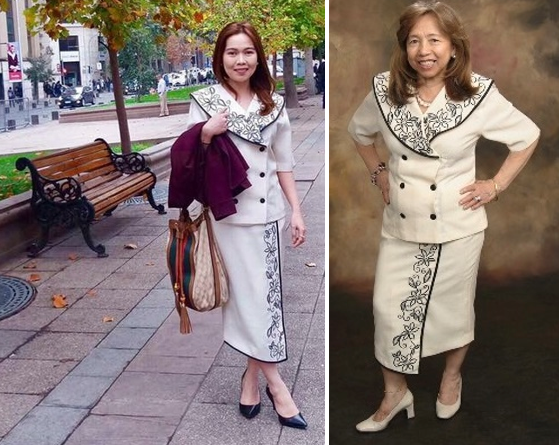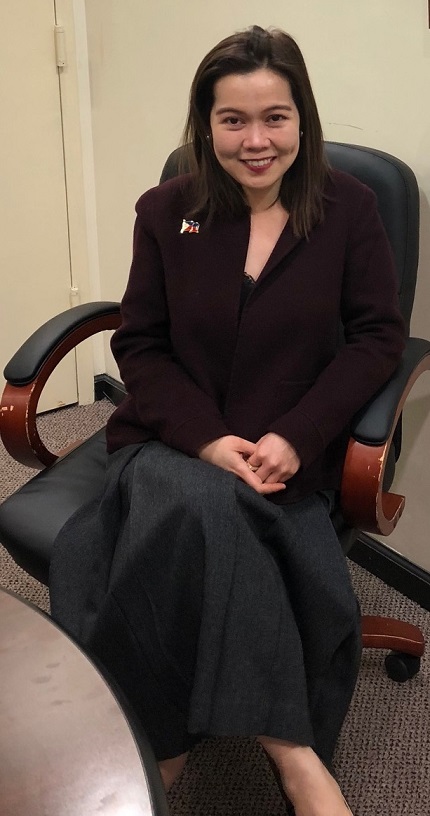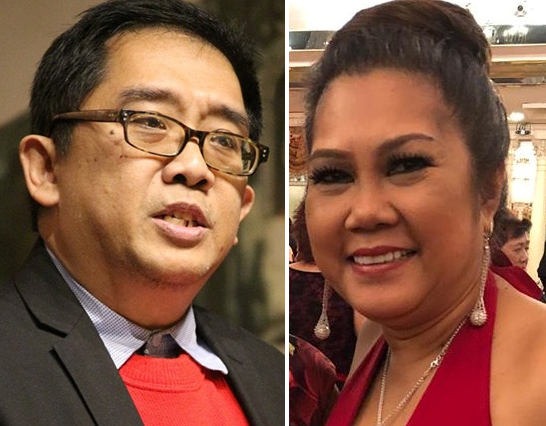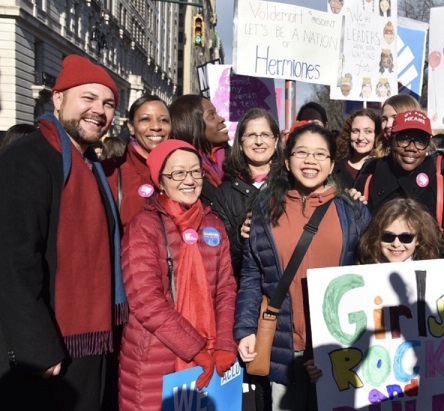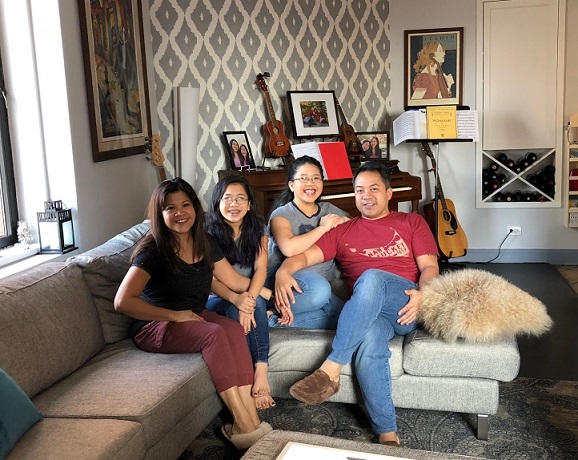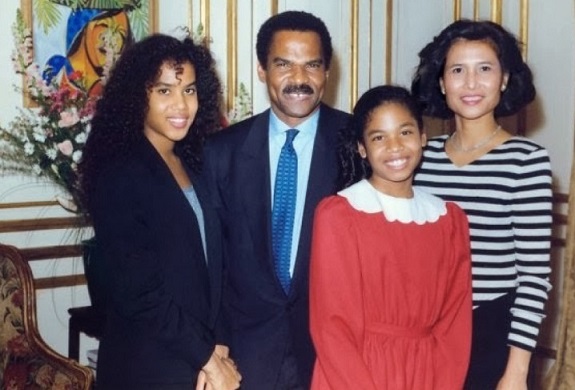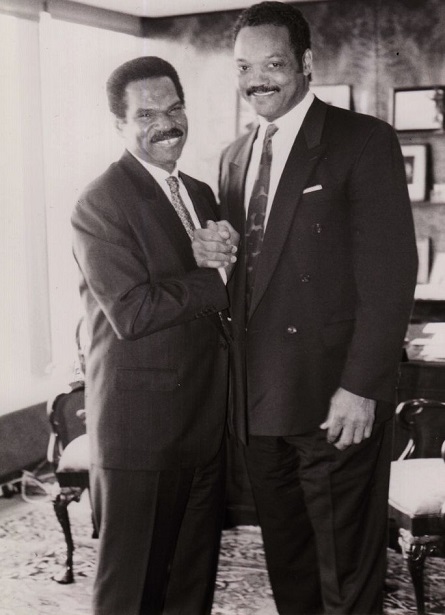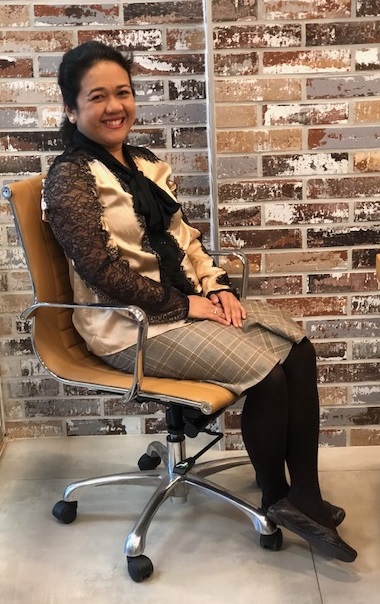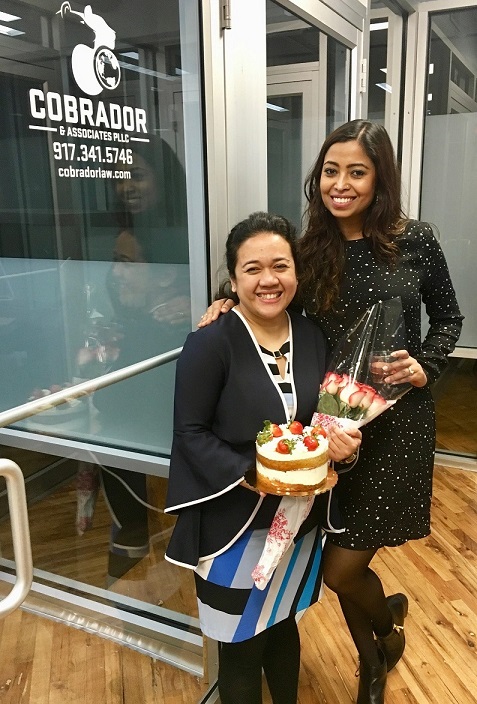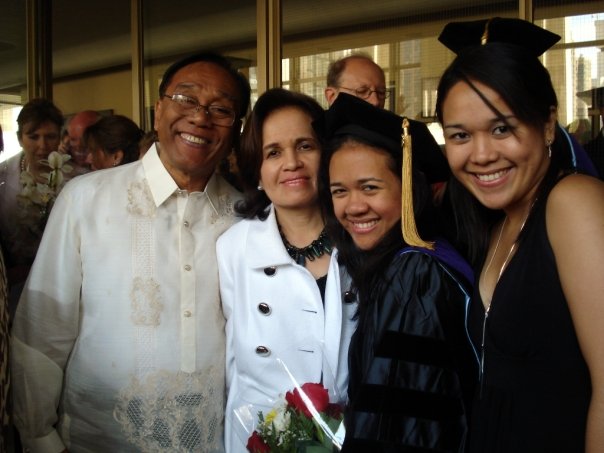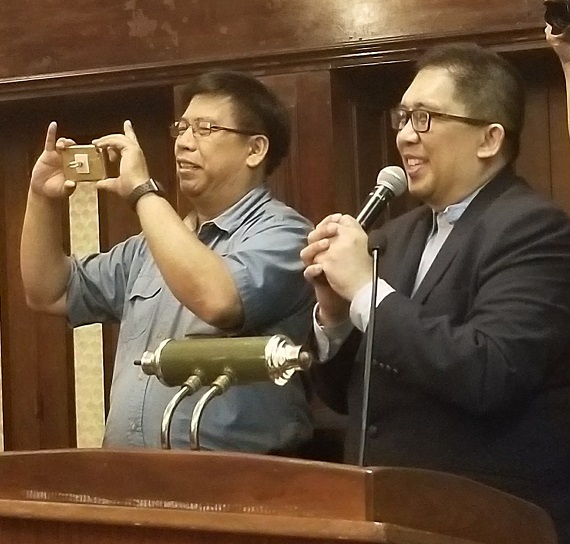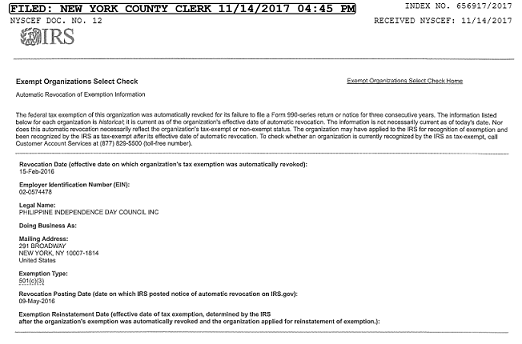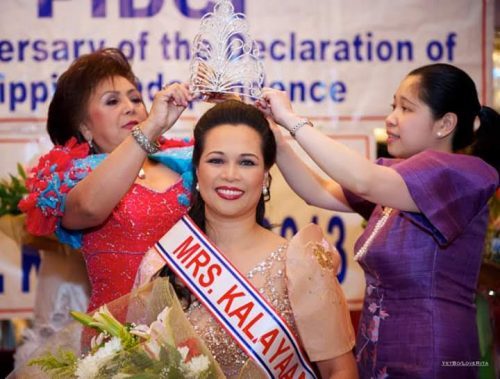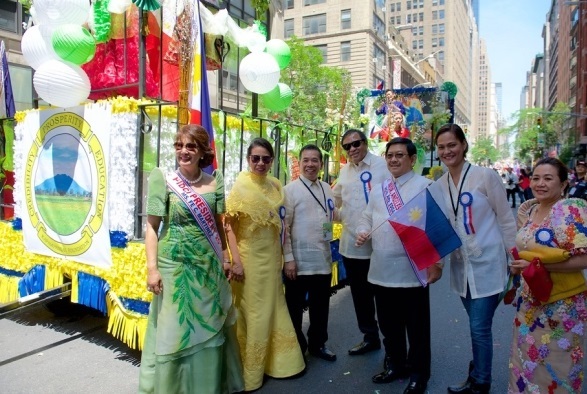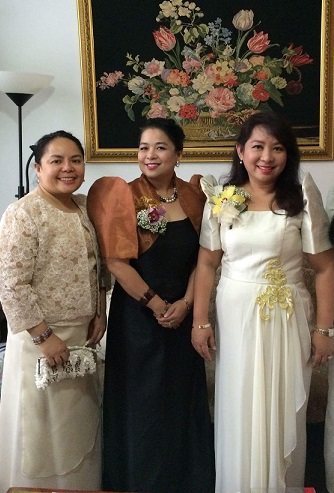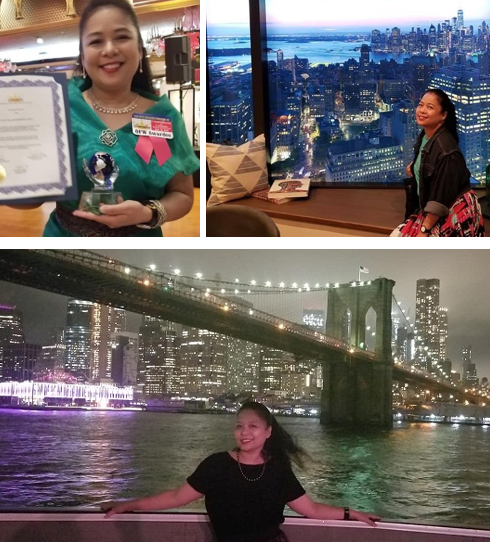
Immigration attorney Amanda Bernardo is NYC delegate to this year’s FYLPRO. Photo by Pineapple Industries
An immigration attorney, Bernardo is the chair of the Immigration Committee of the Asian American Bar Association of New York, and the Public Relations chair of the Filipino American Lawyers of New York. She recently collaborated with Congresswoman Nydia Velasquez and Pulitzer Prize-winning journalist Jose Antonio Vargas to educate Filipino immigrants on their rights in the United States.
For her FYLPRO legacy project, she plans to launch a U.S.-wide “Know Your Rights and Resources” program for new Filipino immigrants.
The other FYLPRO delegates are:
Marjorie Baltazar (Chicago, IL). She is the Principal of Baltazar Global LLC, a business immigration law firm. Prior to launching her firm, Marjorie spent nearly 10 years practicing immigration with a large international law firm. She was born in the Philippines and immigrated to the United States as an eight-year old. She is a member of the American Immigration Lawyers Association and the Filipino American Lawyers Association of Chicago.
Ryan Dalusag (Laguna Niguel, CA). He was born and raised in California. He graduated from San Diego State University with a Masters in Social Work. Currently, Ryan is a clinical social worker on the Behavioral Health Unit at Mission Hospital. He currently serves as executive director for the Lakas Mentorship Program, as well as a Publicity and Outreach Committee member for Filipino Cultural School, both based in Southern California.
Eric John David (Anchorage, AK). He was born in the Philippines by Kapampangan and Tagalog parents, and grew up in Pasay, Las Piñas, Makati, and Alaska. He obtained his Bachelor’s Degree in Psychology from the University of Alaska Anchorage (2002), and Master of Arts (2004) and Doctoral (2007) Degrees in Clinical-Community Psychology from the University of Illinois at Urbana-Champaign. He is currently an Associate Professor of Psychology at the University of Alaska Anchorage and has published theoretical and empirical works on Internalized Oppression or Colonial Mentality, including Brown Skin, White Minds: Filipino – American Postcolonial Psychology (Information Age Publishing). His most recent book is Internalized Oppression: The Psychology of Marginalized Groups (Springer Publishing).
Tyler Dos Santos-Tam (Honolulu, HI). He is the executive director of the Hawaii Construction Alliance, the organization which represents the state’s 15,000-member strong Carpenters, Laborers, Cement Masons, Bricklayers, and Operating Engineers unions. In this unique role, he brings together representatives from these unions to promote cooperation, collaboration, and coordination within the Hawaii’s construction industry. Tyler serves on the Neighborhood Commission, which oversees the City and County’s neighborhood board system, after being appointed by Mayor Kirk Caldwell and confirmed by the Honolulu City Council. He is a graduate of Punahou School and Yale University.
Rebecca Elmore (Guam). Raised on the island of Guam, she is a news anchor and reporter for the Pacific News Center for Sorensen Media Pacific Broadcast. She recently transferred from the University of Colorado Denver to the University of Guam to continue to pursue a Master’s in Public Administration with an emphasis on diplomacy and law. You can catch her on the evening news every weeknight on ABC7 and Fox6.
Ireneo Reus III (Long Beach, CA). He founded The Reus Law Firm in 2005 and represents international and domestic clients in commercial litigation, employment law and corporate matters. He earned his J.D. degree from the UCLA School of Law in 2004, where he was a member of the UCLA Moot Court Honors Program and served as Senior Articles Editor for the UCLA Journal of Law & Technology. He earned his Bachelor of Arts degrees in Economics and Political Science, summa cum laude, from Whittier College in 2001.
Christal Simanski (Alexandria, VA). She is the current president of the Filipino Young Professionals Organization of Washington, D.C. Simanski is also an international affairs and trade specialist for the United States Government. She graduated from the University of Texas, Arlington, as Magna Cum Laude with bachelor degrees in political science and philosophy.
Ryann Tanap (Arlington, VA). She is a writer and advocate for suicide prevention and multicultural communities. She is the manager of Social Media and Digital Assets at the National Alliance on Mental Illness (NAMI). Her blog, Mama Tanap, explores mental health in society. She earned her BA in International Relations with a minor in Middle Eastern Studies from the College of William and Mary.
Ray Villanueva (Seattle, WA). He is an architect, educator, and aspiring builder. He is currently co-director of the Philippines Bamboo Workshop Study Abroad Program through the University of Washington Department of Architecture, which won the 2016 ACSA Design Build Award. He earned his Bachelor of Science in Architecture from the University of Maryland with Summa Cum Laude honors and completed his Master of Architecture at the University of Washington.
© 2017 The FilAm
